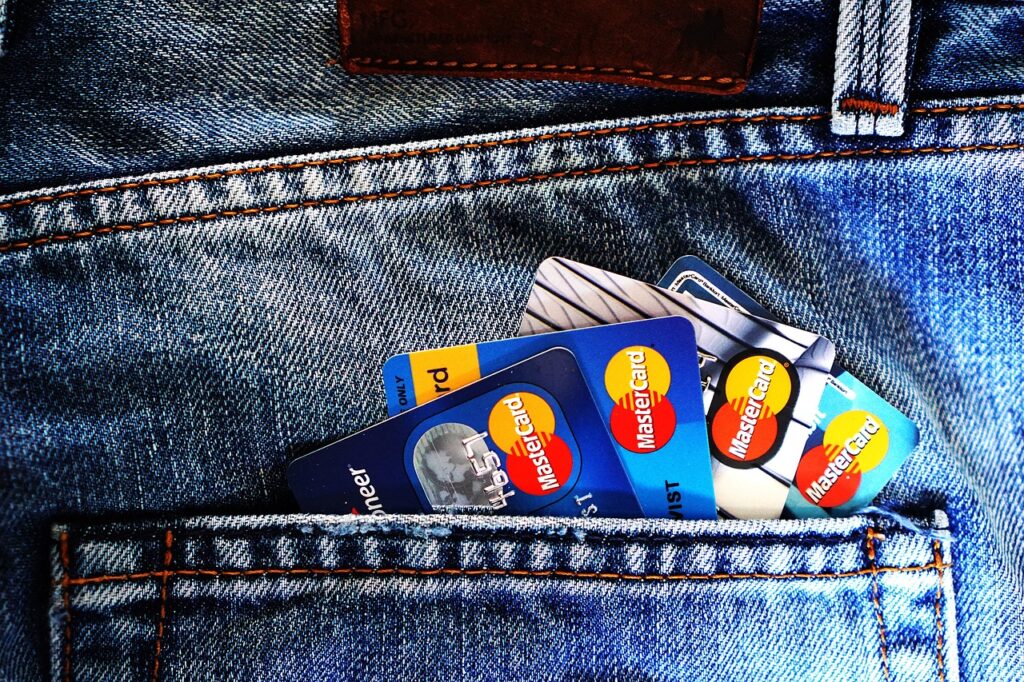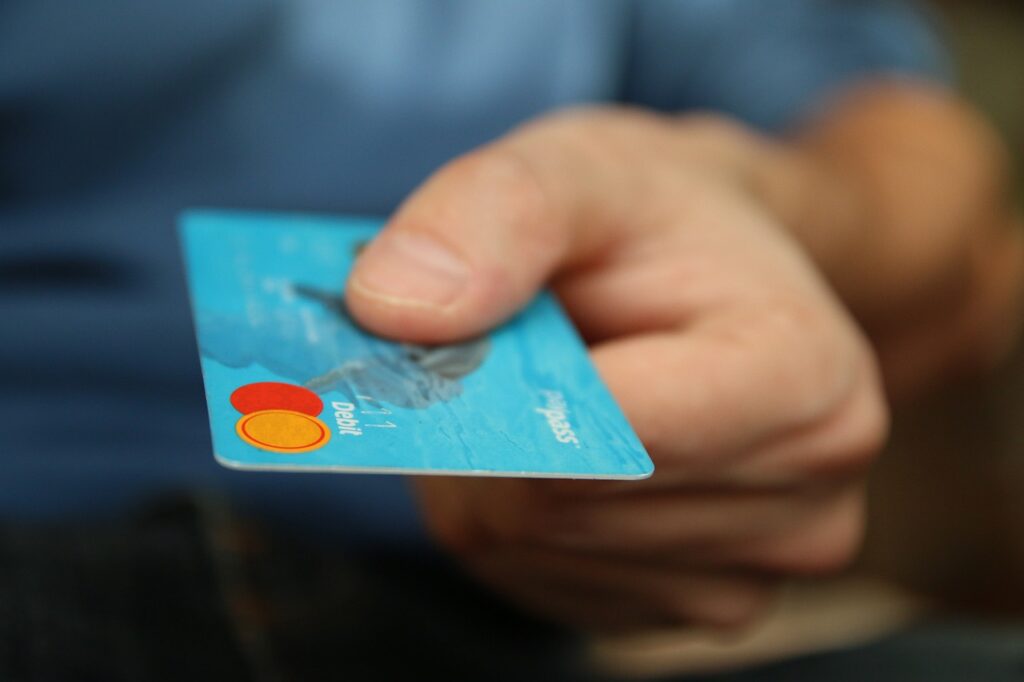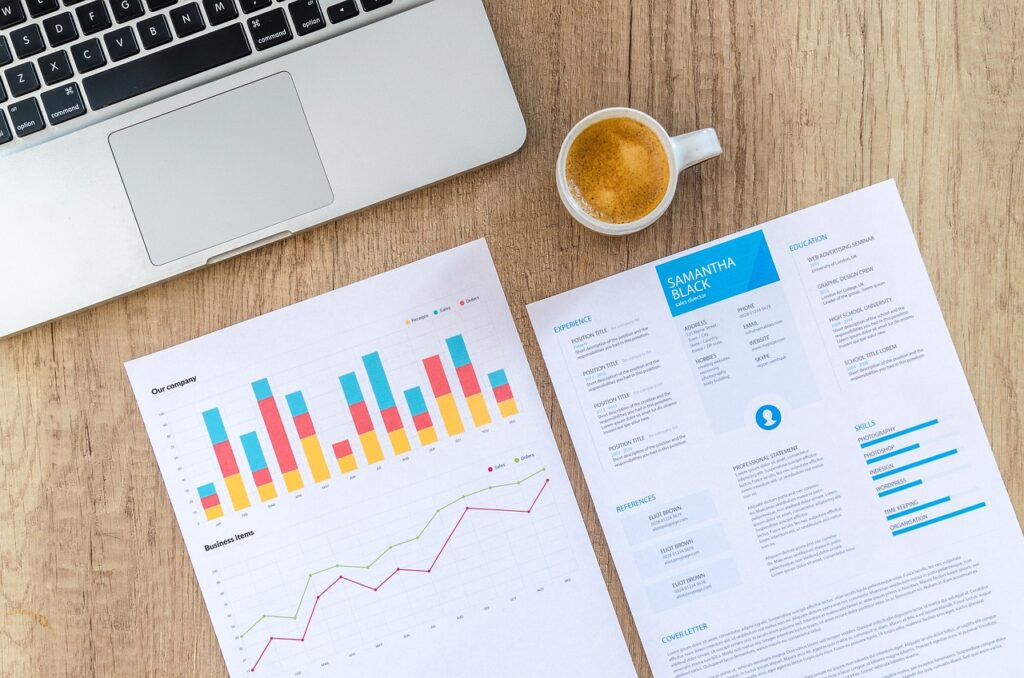You’ve probably heard a million different things about getting a credit card by now. You may have heard that “they’re the devil”, or maybe you’ve heard that they are a key factor in building wealth. Well, I want to work through five good reasons with you about why you should consider opening your line of credit today! I will also talk about some of the potential downsides to credit and how to avoid these traps.
1. Time is a big part of building excellent credit.
Your credit score is comprised of many different factors. One of the largest is the time in which you have held credit. There is more than one way to get this number (as some people jump-start their credit through another person’s credit), but most people’s credit is simply based on the time in which they opened their first credit card.
Even if you have no plans on using the card frequently, the important thing here is to just have the card. In fact, it would be perfectly fine if you were to open it and not make any purchases. Keep in mind that you do want to use your card, but there is nothing inherently wrong with not doing so. Some people do this as an act of self-control or because they are worried about their debt building up, and that is fine. What is important is realizing that good-to-excellent credit is essential to becoming eligible for upgraded and improved credit cards.
It is not so much about what your first card is as it is that you have it. Yes, do your research on your first card and look for the best deal for you. (Also, check with your friends and relatives for a referral code so that both of you might get a reward when you apply and get approved for a card.) But do not over-obsess about the perfect card because you will not be able to get that “perfect card” until you meet the right criteria. And guess what? Time in credit will be a huge part of that criteria!
2. Over time, your benefits will add up.
Credit card benefits aren’t always the most insane. They may even sound insignificant to you at face value, but that is definitely not the smartest way to look at these benefits. Whether it’s cash back or flight miles, the perks offered by your card can save you a lot of money. Many credit cards do a “5%, 3%, 1%” cash back deal, with each percent being obligated to a different category of purchase, such as “gas” or “groceries”.
Now let’s take a common example and consider how much this could benefit you. For example, buying groceries for the week might cost you $200, so if we could get 5% cash back, that means we could save $10 a week or $520 a year. That figure may not perfectly match your scenario, but that isn’t even considering cash back from any other purchases.

3. Having good credit is a big part of securing a home or auto loan.
You may not be too worried about this at the moment, but one day you will be. Don’t worry; there is nothing wrong with financing if you do it right. Financing properly is enough of a post of its own, but this is definitely a crucial factor to understand about financing. So why does credit matter when it comes to securing a loan? Well, one of the first things that’ll be done when applying to finance a car will be having your credit score checked. Whatever score comes back from that check will be a huge determining factor in what you will be eligible to purchase (along with factors such as your down payment).
Not only does a bad credit score limit your options, but it will also kill your interest rate. A poor interest rate is going to make the purchase of any vehicle a whole lot more painful than it needs to be. Now let’s talk about getting a home loan.
There are several different metrics by which the bank will judge you for pre-approval on a home, and an important one happens to be your credit score. Because if you can’t be trusted to be responsible with a car note, how will you ever be trusted with a hefty housing note? You can’t, and therefore you have turned yourself into a poor investment for the bank. So get those credit scores up and those interest rates low!
4. What if there is an emergency?
Let’s define “emergency” for the sake of everyone here. An emergency isn’t “I need a PS5 right now, but I don’t get paid for a week.” An emergency is “my car won’t start, and I have to pay for a new battery so I can make it to work this week.” If that didn’t get the point across, an emergency should be a dire situation in which your last source of money is your credit card and it is entirely necessary to make this purchase.
This is a part of life, and it happens to people all the time. Credit cards are actually great for this, but it is important to consider what happens after the emergency. After the emergency, you should be prepared to hunker down and make paying off your big expense a top priority.
Also, this whole point could be superseded by the fact that everyone should try and hold an emergency fund to use before it ever comes to this extreme. But, as long as you know what to do, credit cards could be a life saver, and you won’t have to give your life away for this safety line.
5. Using credit cards is a more secure form of payment.
Credit companies, unlike debit companies, offer fraud liability protections. This is a huge advantage in today’s society, as the internet is swarming with scammers attempting to gain access to your financial information at any given moment. If they were to get access to your debit information, you may be in a lot of trouble, but if they were to get ahold of your credit information, you should face no consequences resulting from this.
Credit companies also offer other important protections, such as the ability to be refunded for certain bad transactions. For many of these companies, for example, if you were to book a hotel room and the room turned out to be in incredibly poor condition in comparison to what was offered (especially if there was a health risk), you could challenge the purchase and you would have a decent chance at getting a refund for your purchase.


